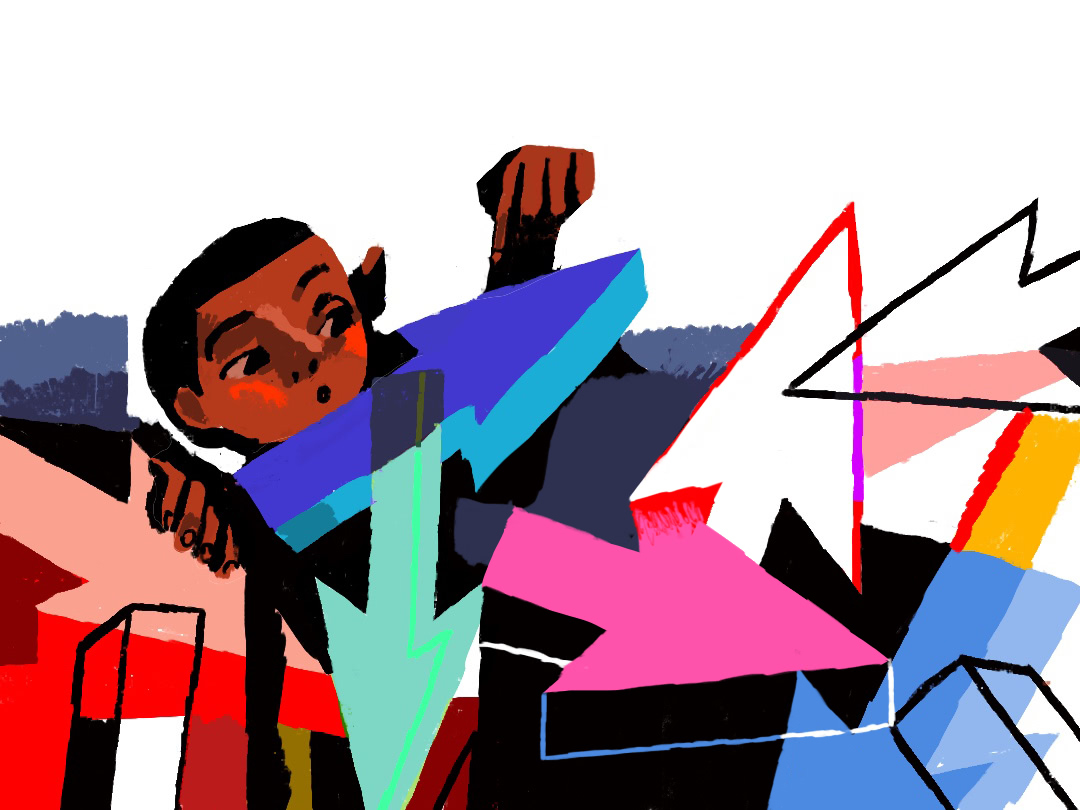7 Digital Citizenship Activities for Different Learning Styles
Some educators (parents and teachers alike) assume digital citizenship as a tricky subject to teach in part because kids are interacting with technology all day. In response to that, this article presents some fun activities anyone can use to teach kids how to recognize the dangers of an online world and become a good digital citizen—emphasis on good.
Let's start with a question: What is a good digital citizen? A good digital citizen is anyone who develops skills to help them navigate the internet safely and use digital devices responsibly. Though digital citizenship is a broad term, it can be boiled down to 3 important concepts: internet safety, cyberbullying, and digital wellness.
Whether you’re a teacher or a parent that wants to teach positive online habits, the following seven digital citizenship activities will help.
Some kids learn best by mapping out or visualizing concepts, essentially using a mind map. Before starting this activity, introduce the concept of a scam and discuss ways to recognize and avoid scams. Next, ask your students to jot down 1-3 scams and create branches that indicate the steps a scammer might take to trick an unsuspecting internet user into falling victim to it. Encourage them to think of as many tactics as possible. Finally, invite your students to share and discuss their maps within peer groups.
Some kids have to experience online dangers firsthand before truly understanding the importance of internet safety. In such cases, introduce your child to role-playing games that enable children to encounter real-world dangers without facing real-world risks.
Banzai offers multiple free online digital citizenship games, along with other learning activities designed for elementary and middle-school-aged students. These games narrow down into specific topics and allow kids to role-play through a variety of real-world scenarios. This helps them master digital citizenship skills, assess how technology impacts their mental and physical health, and learn about the damaging effects of harmful words and cyberbullying.
Search for an article that recounts an online fraud experience. Invite students to read the experience out loud, either in a classroom setting or at home. After reading different sections, facilitate an open-ended discussion about potential preventive measures for the fraud. Additionally, you may want to explore and discuss the '8 Internet Safety Rules for Kids.'
The damaging effects technology can have on someone’s mental and physical health needs to be addressed, and starting that discussion early is beneficial. This activity is a great way to get the discussion started.
Invite kids to interview a peer or an adult about the adult's experience with technology. Feel free to come up with some questions of your own as an interview guide us any of the following options:
- Do you find yourself participating heavily in the late-night scrolling culture where you go to bed relatively early but stay up late scrolling through social media channels?
- How often do you experience dry eyes, headaches, blurred vision, or itching/burning eyes during or after looking at screens?
- How often does your neck, shoulder, or back hurt after looking at your computer or phone (not caused from a related injury or illness)? This is sometimes called text neck.
- How often do you use apps or devices to track fitness or encourage healthy living?
- When you look up an answer to a question online, how often do you read multiple sources or points of view?
- How often do you zone out while on your device (watching videos, scrolling through a feed, playing a game that doesn't require thought, etc.)?
- Do you find it hard to concentrate on off-screen activities (reading a book, writing without a computer, etc.)?
- Would you feel lonely, anxious, or stressed if you had to go a day without your phone?
- How often do you take a post down because it didn't get enough likes?
- How often do you feel jealous of something you see online?
- On average, how many of your online interactions would you say are negative? (arguing, leaving negative reviews, looking at hurtful comments, etc.)
- How important is it for you to present a perfect representation of yourself online?
It's important to note that there are no right or wrong answers to these questions. Some responses may focus on positive aspects, while others may touch on the negative. The goal is to prompt students to reflect on their relationship with technology and to open up the topic for discussion.

Give kids a list of digital citizenship vocab terms and invite them to make flashcards of them. Here’s a list of some important internet safety terms to get you started:
- Digital Citizen: Someone who uses the internet or mobile devices effectively.
- Anonymous: When someone keeps their identity secret so that their actions can't be tied to them.
- Blackmail: When someone forces a target to do something by saying they'll reveal information that the target wants to keep private.
- Brute Force Attack: A way for hackers to get into accounts with weak passwords. They use a computer to automatically input thousands of common passwords until it enters the correct one.
- Catfishing: When a person uses an online persona to gain the trust of someone else.
- Cyberstalking: Messaging, commenting, or talking to someone digitally in a way that's threatening or stressful.
- Denigration: A type of cyberbullying that focuses on making someone look bad by spreading rumors or gossip.
- Digital Wellness: A part of your health that is impacted by technology. Strong digital wellness means a healthy relationship with technology.
- Doctored photos or videos: Photos and videos that have been edited to look real. They will often change what a person is doing, place their face on someone else's body, or even add them to a place they never were.
- Flaming: A type of cyberbullying that focuses on posting or sending insults and offensive comments.
- Hate Speech: Insults or harsh words that target someone based on a part of their identity, such as their religion or race.
- Impersonation: A type of cyberbullying that focuses on pretending to be someone you aren't online in order to hurt someone else.
- Intellectual Health: An aspect of your overall wellness that focuses on the mind (creativity, curiosity, learning, open-mindedness). It's a measure of how willing you are to explore new ideas and grow intellectually.
- Malicious Adware: Ad software that can install viruses onto your device, show you inappropriate ads, or pop up excessive ads online.
- Malware: Software designed to gain unauthorized access to and disrupt or damage a computer system.
- Mental Health: A part of overall wellness that includes emotional, psychological, and social well-being. It impacts how you feel, handle stress, and relate to other people.
- Outing or doxing: A type of cyberbullying that focuses on revealing private information about someone else online.
- Phishing: When a scammer impersonates or claims to represent a legitimate company or person online in order to trick you into giving them money or information.
- Physical Health: One part of your overall well-being that focuses on your physical body. It takes into account activity level, nutrition, sleep cycle, injuries, illnesses, etc.
- Ransomware: A malicious software that blocks access to a phone or computer system until a sum of money is paid.
- Remote Access: The ability to control your device through another phone or computer. It usually requires downloading some kind of app or software.
Verbal learners retain more information when they can listen to a discussion or presentation. You can choose to take one of two approaches for this activity: you can invite groups of students to research, create, and present various digital citizenship topics to the classroom, or you could deliver a custom-made presentation yourself and have the students take notes.
This activity encourages kids to explore digital citizenship by reading one or two articles and composing a short essay, around 500 words, to share their thoughts on the insights gained. Unsure where to begin? Have your students consider reading any of the articles below:
- Recognizing and Avoiding Scams
- Protect Yourself Online
- 50 Internet Safety Tips
- 8 Internet Safety Rules for Kids
The concept of teaching digital citizenship to students is not new; in fact, many schools have already implemented workshops and lessons on the topic. Whether you have experience with digital citizenship or not, the crucial aspect is to discover activities that cater to each student's learning style.
Many parents may feel helpless as their kids navigate a highly connected world—especially when some adults did not grow up with such a strong connection to technology. The top priority is to protect kids and teach them how to stay safe online, even if articulating this concept might be challenging.
Neither Banzai nor its sponsoring partners make any warranties or representations as to the accuracy, applicability, completeness, or suitability for any particular purpose of the information contained herein. Banzai and its sponsoring partners expressly disclaim any liability arising from the use or misuse of these materials and, by visiting this site, you agree to release Banzai and its sponsoring partners from any such liability. Do not rely upon the information provided in this content when making decisions regarding financial or legal matters without first consulting with a qualified, licensed professional.


